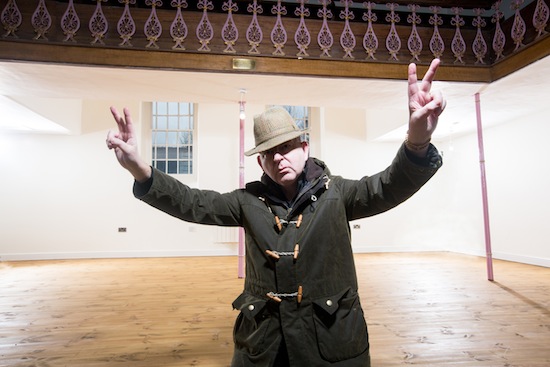It’s strange that, unlike, say, Tony Wilson, Alan McGee has never been saddled with that most oxymoronic of pop epithets: ‘record label visionary’. Strange, because on paper McGee’s list of signings – The Jesus And Mary Chain, Primal Scream, My Bloody Valentine, The Pastels, Teenage Fanclub, Sugar, Ride, Oasis, Super Furry Animals – is surely the most impressive in the history of alternative rock music (or ‘indie’, or whatever you want to call it). The roster McGee built up at Creation Records between its foundation in 1983 and its final demise in 1999 offers a perfect summary of the shimmering, neo-psychedelic first wave of pop’s retro phase, when girl group classicism and dole culture record archaeology hadn’t yet morphed into the arrant pastiche aesthetic of the 21st century.
Perhaps the rather less inspiring example of Poptones, McGee’s follow-up to Creation, has coloured his reputation in recent years (or, more likely, there is a hint of class condescension in the stock perception of him as a clownish, carrot-topped Glaswegian eccentric). Whatever the reason, it is undoubtedly true that McGee deserves to be regarded as one of the great countercultural organisers of the last half-century, as someone who used the ethos of punk to create a musical landscape that defined the long pre-Blair decade and helped to bring into being some of the most colourfully melodic, energetically narcotic records of the late 80s and early 90s.
Indeed, catching up with McGee in early 2014 to chat about the records that shaped his life and work, the cliché that sprung immediately to mind was: they don’t make them like this any more. From his home in the Anglo-Welsh borders, McGee spoke with eloquence and zeal about the heroic age of pop that made him the garrulous, witty proselyte for left-of-centre guitar music he clearly still is even after all these years. From Bowie to Dr. Feelgood, to The Stone Roses and back to Bowie again, McGee’s trawl through the populist tradition of post-glam guitar music is a lyrical affirmation of a queer, decadent, largely working-class strand of mainstream pop culture that arguably no longer exists.
Alan McGee runs 359 Music; head to their website here. Alex Niven’s 33 1/3 book on Oasis’ Definitely Maybe is published today; read an excerpt, alongside Alex’s review of the Chasing The Sun reissue, on tQ here and order it from Bloomsbury here. Alex will be launching the book with a talk, followed by a 1994-themed DJ set by tQ scribe David Stubbs, at the Peckham Pelican on July 16; head here for details. Click on his picture below to begin scrolling through Alan’s choices


